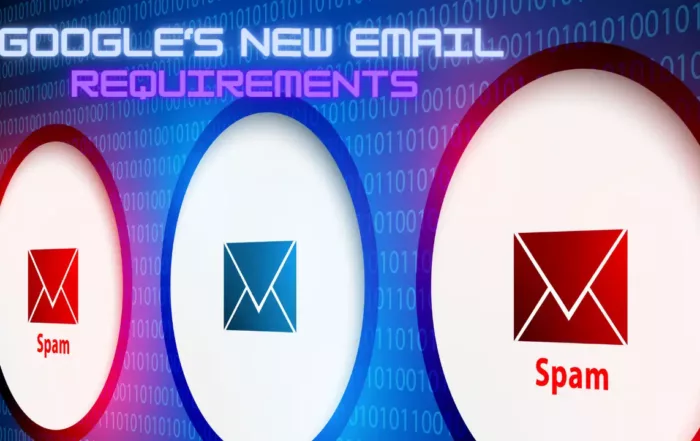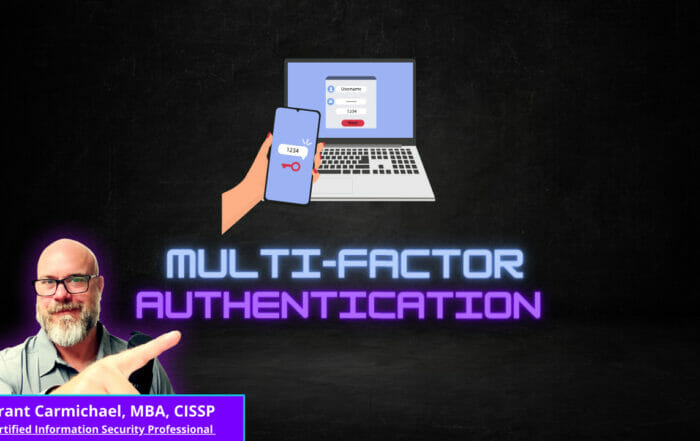Introduction to Multi-Factor Authentication (MFA)
In today’s digital realm, just a username and password for your business might be equivalent to locking your brick-and-mortar store with a flimsy latch. Cybercrime boomed in 2020, largely driven by shifts in work patterns and, unfortunately, global crises. You’re not just securing bytes and pixels; you’re protecting your brand, your reputation, and the trust your clients have in you – especially crucial for small businesses focusing on email marketing and social media management.
The Alarm Bells are Ringing – 400% Increase in Cyber Attacks
2020 wasn’t just challenging because of the pandemic; it was a heyday for cybercriminals. The FBI reported a whopping 400% increase in cyberattacks compared to pre-Covid days. Now, it’s not about “will they try to hack me?”, but rather “when will they?” For every small business, especially digital marketing agencies, it’s pivotal to fortify defenses. At the forefront? Multi-factor authentication.
Breaking Down MFA
Multifactor Authentication (MFA) or two-factor authentication is like having a digital bouncer for your business. It’s not satisfied with just the regular entry pass; it wants to double-check it’s really you. Even if, say, someone sneaked a peek at your password, they’d still need this second check to get in.
Essentially, MFA is that backup security guy making sure your email campaigns and social media accounts, the lifeblood of digital marketing, remain in safe hands.
MFA is Non-Negotiable Today
Consider this: a single cyber breach today averages a loss of around $3.92 million. That’s a financial nightmare for any business, especially small ones. When should a digital marketing agency or any small business adopt MFA? Yesterday. With over two-thirds of companies not deploying MFA at all, it’s time to step up.
And let’s face it, we often reuse passwords. Some of them might even make a hacker chuckle. While tools like SSO (single sign-on) are handy, the real champion in the ring, especially for protecting those crucial email and social media accounts, is MFA.
Why MFA is the Hero We Need
1. Fortified Defenses: An added layer means hackers have to jump through another hoop, making it a tedious task for them. It’s like adding a second security camera; they’ll think twice.
2. Simple, Yet Effective: There’s always a tussle between convenience and security. But honestly, taking a moment to check a code on your phone versus the catastrophe of a breached email campaign? No contest.
3. A Breather for Your Cybersecurity Warriors: With the daily deluge of threats, your cybersecurity team is on the frontline. MFA helps ease their load, allowing them to focus on broader, more sophisticated threats.
MFA in Action: How It Works
1. SMS token authentication: After entering your login info, you get a code on your phone. Punch that in, and you’re good to go.
2. Email token authentication: Like the SMS method, but the code lands in your inbox. Handy, but always ensure your email is secure.
3. Software token authentication: Think of apps like Google Authenticator. They either give you a code or ask for permission. It’s a seamless and secure dance between your device and the app you’re accessing.
4. Biometric authentication: Your unique fingerprint or face is the key. It’s the future, now. And hackers can’t replicate your fingerprint or face (yet).
5. Security questions: Old school, but still around. However, choose questions that aren’t easily guessable. “Your favorite pet’s name?” might be on your Instagram.
Why We’re Championing MFA in Digital Marketing
In the age of digital marketing, our business thrives on trust. And while I’ve learned a lot navigating the waters of cybersecurity, one thing stands out: many small businesses, especially digital marketing agencies, overlook the simple steps. MFA is one such step—a blend of simplicity, effectiveness, and sheer brilliance in safeguarding your digital assets.
Want to keep your email campaigns, social media accounts, and client trust secure? Dive deeper into the world of MFA and other cybersecurity tips with us. Stay informed, stay secure.
About the Author
Grant Carmichael
Grant Carmichael is a seasoned Information Security Professional and Digital Marketer with over a decade of experience. As the founder of EVANCED.NET, he leads a team that helps businesses of all sizes achieve success through data-driven digital marketing strategies.
A devoted husband to Katie and father to Hadley and Hensley, Grant enjoys wake surfing on Lake Lanier and RV adventures with his family. Combining technical expertise with a personal touch, Grant and his team at EVANCED.NET are dedicated to delivering exceptional results for their clients.



